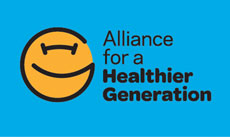 On the heels of our Greater Washington, DC area regional Complete Streets policy, the National Complete Streets Coalition (NCSC) released their
On the heels of our Greater Washington, DC area regional Complete Streets policy, the National Complete Streets Coalition (NCSC) released their
Resource Library
In 2012, the MAP-21 transportation legislation made changes to the Federal Safe Routes to School program that added a required state or local match of up to 20 percent of project costs.
This webinar from December 9, 2014 explores the process used to create Complete Streets in a variety of southern settings.
 During the opening plenary session at ProWalk/ProBike in Long Beach, Suja Lowenthal, PhD, a council member from Long Beach, addressed the attendees. She’s a passionate advocate, sharing many ideals so many of us do, but I strongly agreed when she declared that our communities are not bike-friendly until mothers with children feel comfortable taking to the streets. That is such an importa
During the opening plenary session at ProWalk/ProBike in Long Beach, Suja Lowenthal, PhD, a council member from Long Beach, addressed the attendees. She’s a passionate advocate, sharing many ideals so many of us do, but I strongly agreed when she declared that our communities are not bike-friendly until mothers with children feel comfortable taking to the streets. That is such an importa
 October is such a great time of year.Everywhere I look lately, no matter what city or town I am visiting, I see more children and families walking and bicycling to school, the park, other destinations and just for fun.
October is such a great time of year.Everywhere I look lately, no matter what city or town I am visiting, I see more children and families walking and bicycling to school, the park, other destinations and just for fun.
 The Alliance for a Healthier Generation, founded by the American Heart Association and the William J. Clinton Foundation, was formed in 2005 as a response to the dramatic increase in prevalence of childhood obesity across the nation.
The Alliance for a Healthier Generation, founded by the American Heart Association and the William J. Clinton Foundation, was formed in 2005 as a response to the dramatic increase in prevalence of childhood obesity across the nation.
 The Transportation Improvement Program (TIP) is a region’s approved list of specific transportation projects mandated by federal law. It serves as a multi-year financial schedule for obligating federal funds to state and local transportation projects. The TIP contains funding information for all modes of transportation including bicycle and pedestrian projects.
The Transportation Improvement Program (TIP) is a region’s approved list of specific transportation projects mandated by federal law. It serves as a multi-year financial schedule for obligating federal funds to state and local transportation projects. The TIP contains funding information for all modes of transportation including bicycle and pedestrian projects.
 I recently had the privilege of speaking at the Fairfax County Bike Summit. It was the first Bike Summit in the county. Fairfax County has come a long way through the work of the Fairfax Advocates for Better Bicycling.
I recently had the privilege of speaking at the Fairfax County Bike Summit. It was the first Bike Summit in the county. Fairfax County has come a long way through the work of the Fairfax Advocates for Better Bicycling.
 During the month of November we are reminded to give thanks. I have Facebook friends who are making an effort to post something they are thankful for every day of the month. While I like this idea, I think we should also make an effort to thank others -- to let them know we appreciate them.
During the month of November we are reminded to give thanks. I have Facebook friends who are making an effort to post something they are thankful for every day of the month. While I like this idea, I think we should also make an effort to thank others -- to let them know we appreciate them.
 The end of the year is a time of reflection on all that we value. Here at the Safe Routes Partnership, we value the simple act of walking or bicycling safely to school, a shop or to work.
The end of the year is a time of reflection on all that we value. Here at the Safe Routes Partnership, we value the simple act of walking or bicycling safely to school, a shop or to work.
This report explores the obstacles limiting walkability to parks and identify the essential elements of a safe route to a park.
 As we kick off the new year, our staff leadership and steering committee reviews our progress towards the goals of our strategic plan.
As we kick off the new year, our staff leadership and steering committee reviews our progress towards the goals of our strategic plan.
Section 1807 of the Safe, Accountable, Flexible Efficient Transportation Equity Act: A Legacy for Users(SAFETEA-LU) P.L. 109-59 established the Nonmotorized Transportation Pilot Program (NTPP) inAugust 2005
 The Tennessee Network has some exciting plans for 2013 and some amazing members to help get the job done. Here’s the short list of what we are working on.
The Tennessee Network has some exciting plans for 2013 and some amazing members to help get the job done. Here’s the short list of what we are working on.
This article describes strategies for risk management in implementing Safe Routes to School programs.
 In Los Angeles County, the popular narrative says that everyone drives all the time, and transportation policy has largely reflected this social understanding. However, active transportation modes are a significant form of mobility, calling into question the truth of the dominant narrative.
In Los Angeles County, the popular narrative says that everyone drives all the time, and transportation policy has largely reflected this social understanding. However, active transportation modes are a significant form of mobility, calling into question the truth of the dominant narrative.
This report provides models for using statewide campaigns to use policies and processes to impact the flow of federal funds to biking and walking projects and programs.

This study assessed the Safe Routes to School (SRTS) program in five states: Florida, Mississippi,Texas, Washington, and Wisconsin.
 Bike to School Day is just around the corner on May 8th. Are you in, North Carolina?
Bike to School Day is just around the corner on May 8th. Are you in, North Carolina?
Across North Carolina there are so many great Safe Routes to School programs in place at hundreds of schools. You can visit most any of those schools now and see bikes being parked at bike racks and parents leading kids in their walk to and from school.

